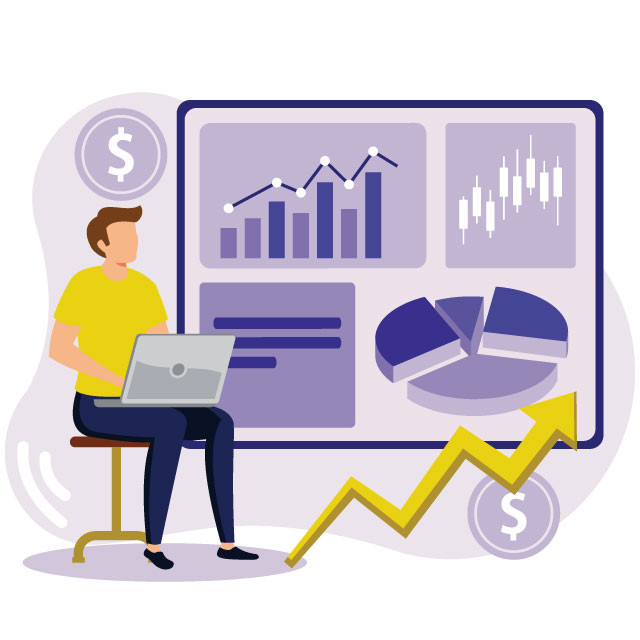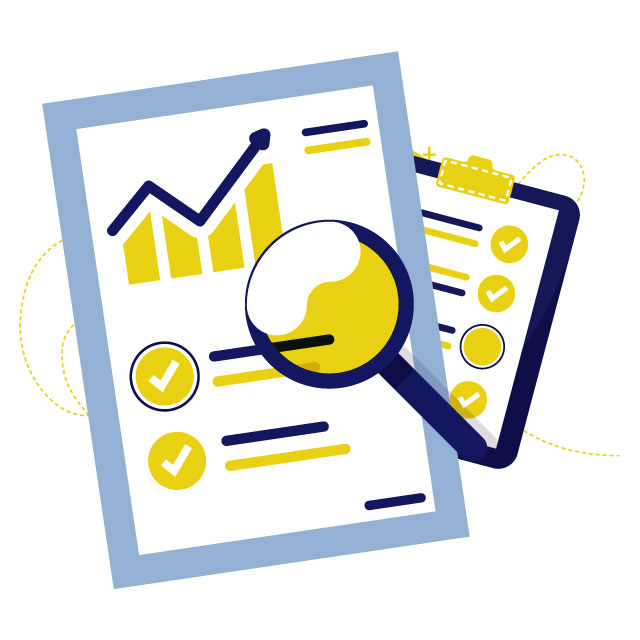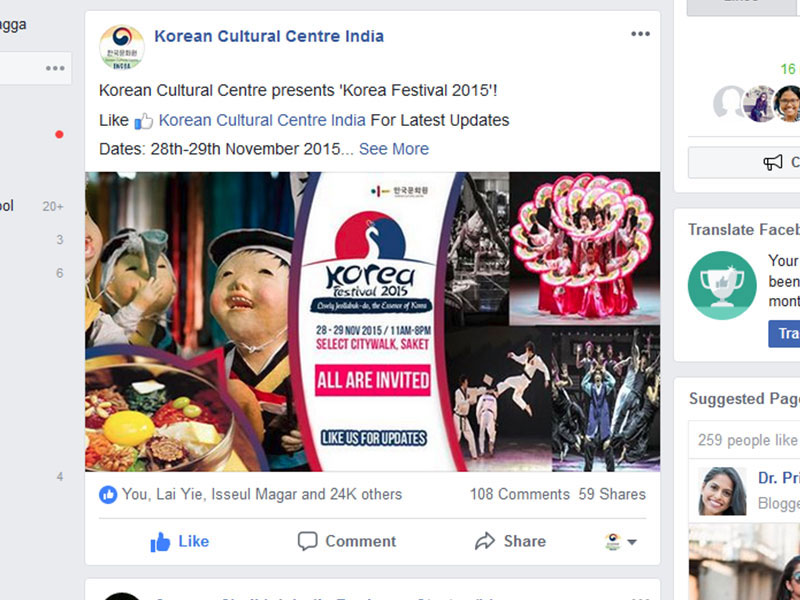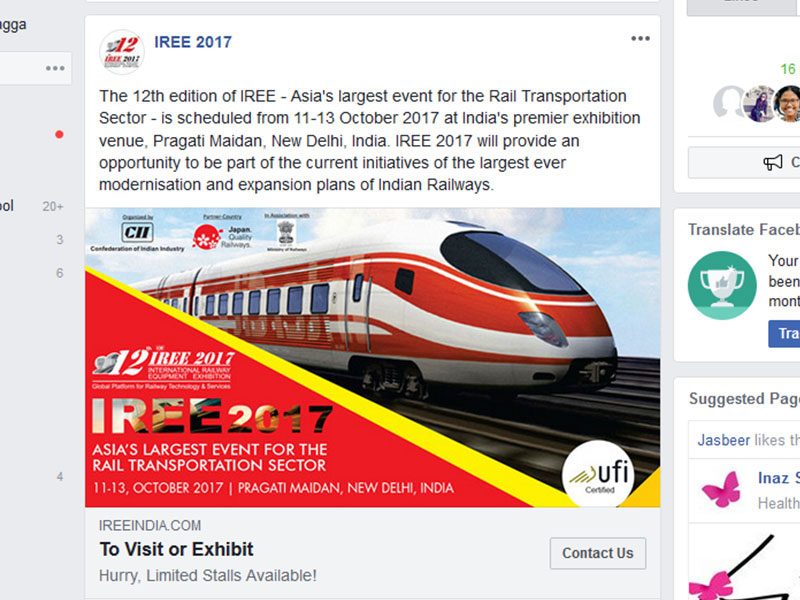India’s Best
Digital Marketing Agency
Digital Marketing Agency
Digitally promoting businesses since 2010
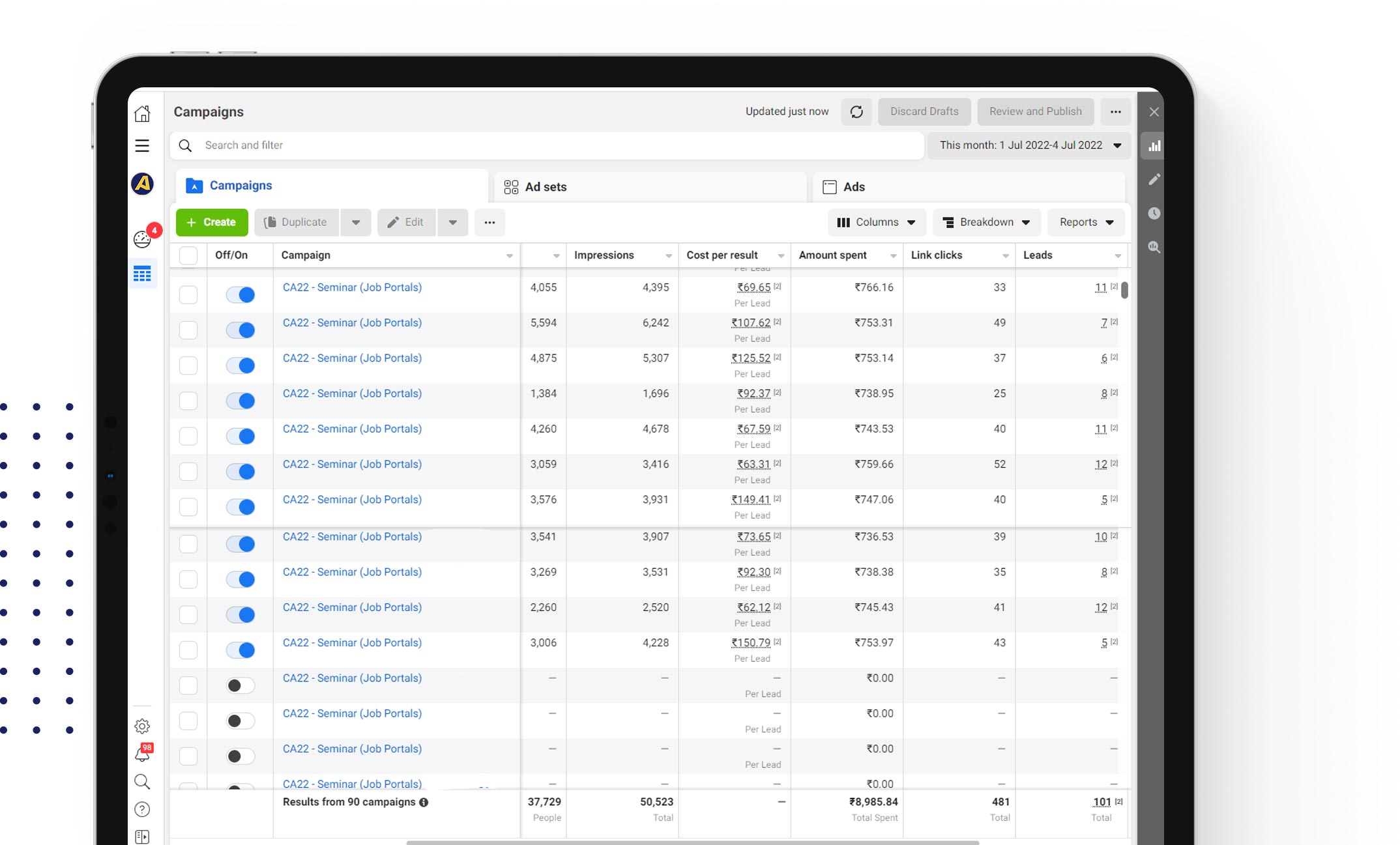
Globally Trusted and Best Digital Marketing Agency in India
Globally Trusted and Best Digital Marketing Agency in India
1000+ Digital Marketing Projects Successfully Delivered. For every Digital Marketing project, we take care of the brand analysis, marketing strategy, digital ad design, social media marketing, ad management, tracking & monitoring, influencer strategy, and much more.
Our Digital Marketing Services Include
Digital marketing projects
Digital marketing projects
As an aspiring top digital marketing agency in India, we have been working on Digital Marketing projects since 2010. It was in 2006, we started with google search AdSense and google ads in 2009, then expanded ourselves as a social media marketing agency with Facebook ads in 2011. Thereafter, meeting and satisfying client requirements, we not only delivered what was needed but also innovated ourselves with the latest digital marketing trends and technologies. Updating ourselves helped in delivering the best to our clients across the globe. Currently, we also cover crypto ads on various platforms.
Digital Marketing Packages
Starter
- Static Design: 2
- Social Posting (w/o Dsn): 10
- Budget Management: INR 50k
- Digital Strategy
- Tracked & Monitored
- Influencer Strategy: NA
- Influencer Management: NA
- Platforms Included: 3
- Search Engine Marketing
- Social Media Marketing
- Affiliate Display
- Persona Creation
- Merchant Ads
- Conversion Marketing
- Conversion Optimization
- PPC Ads
- E-Commerce Ads
- Display & Video Ads
- Crypto Ads: NA
- Marketing Automation
- Mobile Marketing
- Leads Generation
- Re-Marketing
Basic
- Static Design: 3
- Social Posting: 2
- Budget Management: INR 150k
- Digital Strategy
- Tracked & Monitored
- Influencer Strategy: NA
- Influencer Management: NA
- Platforms Included: 4
- Search Engine Marketing
- Social Media Marketing
- Affiliate Display
- Persona Creation
- Merchant Ads
- Conversion Marketing
- Conversion Optimization
- PPC Ads
- E-Commerce Ads
- Display & Video Ads
- Crypto Ads: NA
- Marketing Automation
- Mobile Marketing
- Leads Generation
- Re-Marketing
Standard
- Static Design: 6
- Social Posting: 4
- Budget Management: INR 300k
- Digital Strategy
- Tracked & Monitored
- Influencer Strategy: YES
- Influencer Management: NA
- Platforms Included: 5
- Search Engine Marketing
- Social Media Marketing
- Affiliate Display
- Persona Creation
- Merchant Ads
- Conversion Marketing
- Conversion Optimization
- PPC Ads
- E-Commerce Ads
- Display & Video Ads
- Crypto Ads: YES
- Marketing Automation
- Mobile Marketing
- Leads Generation
- Re-Marketing
Premium
- Static Design: 15
- Social Posting: 10
- Budget Management: INR 800k
- Digital Strategy
- Tracked & Monitored
- Influencer Strategy: YES
- Influencer Management: YES
- Platforms Included: All
- Search Engine Marketing
- Social Media Marketing
- Affiliate Display
- Persona Creation
- Merchant Ads
- Conversion Marketing
- Conversion Optimization
- PPC Ads
- E-Commerce Ads
- Display & Video Ads
- Crypto Ads: YES
- Marketing Automation
- Mobile Marketing
- Leads Generation
- Re-Marketing
Our Amazing Partners






FAQs
Digital marketing is the practice of promoting and selling products or services using digital channels and technologies, primarily on the internet but also including mobile phones, display advertising, and other digital mediums. It encompasses a diverse array of techniques and approaches aimed at connecting with potential customers, fostering engagement, and ultimately achieving conversions and sales.
Key components of digital marketing include:
- Search Engine Optimization (SEO): Optimizing websites to rank higher in search engine results pages (SERPs) to increase organic (non-paid) traffic.
- Search Engine Marketing (SEM): Using paid advertising on search engines like Google to drive traffic to websites through paid search listings.
- Content Marketing: It involves the creation and dissemination of valuable, pertinent, and regular content to captivate and retain a specific audience, leading to profitable customer interactions.
- Social Media Marketing (SMM): Promoting brands and products through social media platforms like Facebook, Instagram, Twitter, LinkedIn, and others to engage with audiences and build brand awareness.
- Email Marketing: Sending targeted messages and promotional content to a subscriber list to nurture leads, retain customers, and drive sales.
- Influencer Marketing: Collaborating with influencers, individuals with a significant following and influence on social media, to promote products or services to their audience.
- Affiliate Marketing: Partnering with individuals or other businesses to promote products or services and earning a commission for each sale or lead generated through their referrals.
- Pay-Per-Click Advertising (PPC): Placing ads on search engines, social media platforms, and other websites, and paying a fee each time the ad is clicked.
- Mobile Marketing: Optimizing marketing efforts for mobile devices, including mobile-responsive websites, mobile apps, and SMS (text message) marketing.
- Analytics and Data Analysis: Using tools and platforms to track and analyze the performance of digital marketing campaigns, measure key metrics, and make data-driven decisions to improve results.
Digital marketing offers businesses a cost-effective way to reach and engage with their target audience, personalize marketing messages, track and measure campaign performance, and adapt strategies based on real-time data and insights. It has become an essential component of modern marketing strategies due to the increasing reliance on digital technologies and online channels by consumers.
What does PPC mean in digital marketing?
In digital marketing, PPC stands for “Pay-Per-Click.” It is a form of online advertising where advertisers pay a fee each time their ad is clicked. PPC campaigns are commonly used on search engines like Google, Bing, and social media platforms like Facebook, Twitter, and LinkedIn. They are an effective way for businesses to drive traffic to their websites and increase visibility for their products or services.
What is CTR in digital marketing?
In digital marketing, CTR stands for “Click-Through Rate.” It is a metric used to measure the effectiveness of an online advertising campaign or a specific advertisement.
CTR can be calculated by dividing the clicks an ad receives by the number of impressions it receives, and then multiplying the output by 100 to get a percentage.
For example, if an ad receives 100 clicks and was shown 1000 times (1000 impressions), the CTR would be 10%.
CTR is an important metric because it indicates how engaging and relevant an ad is to its audience. A higher CTR typically suggests that the ad resonates well with users and attracts more clicks, while a lower CTR may indicate that the ad needs optimization or adjustment to better align with user interests and intent.
What is SMM in digital marketing?
In digital marketing, SMM stands for “Social Media Marketing.” It refers to the use of social media platforms and websites to promote a product or service. SMM involves creating and sharing content on social media networks, engaging with followers, running advertisements, and analyzing results to optimize campaigns. Social media marketing aims to increase brand awareness, drive website traffic, generate leads, and ultimately, achieve business goals through social media channels such as Facebook, Instagram, Twitter, LinkedIn, and others.
Digital marketing is crucial for several reasons:
- Reach: It allows businesses to reach a global audience instantly, breaking geographical barriers and expanding their market reach beyond traditional boundaries.
- Cost-effectiveness: Compared to traditional marketing methods like print, radio or television advertising, digital marketing often offers a lower cost per impression or click, making it accessible to businesses of all sizes, including startups and small businesses.
- Targeting: Digital marketing enables precise targeting of specific demographics, interests, behaviours, and even geographical locations, ensuring that marketing efforts are directed towards the most relevant audience segments.
- Measurability: Digital marketing campaigns can be easily tracked and measured using various analytics tools, providing insights into key performance metrics such as website traffic, conversion rates, engagement levels, and return on investment (ROI). This data allows marketers to refine strategies and optimize campaigns in real time for better results.
- Personalization: Through data-driven insights and technologies like artificial intelligence and machine learning, digital marketing allows for personalized communication and tailored messaging to individual consumers, enhancing the customer experience and driving higher engagement and conversion rates.
- Flexibility and agility: Digital marketing channels offer flexibility in terms of campaign duration, ad formats, targeting criteria, and budget allocation, allowing marketers to quickly adjust strategies and tactics based on changing market conditions, consumer behaviour, or business objectives.
- Brand visibility and credibility: Maintaining a strong online presence through digital marketing channels such as social media, search engines, and content platforms helps businesses build brand awareness, establish credibility, and foster trust with their target audience.
- Competitive advantage: In today’s digital age, having a well-executed digital marketing strategy can provide businesses with a competitive edge over their rivals by staying ahead of industry trends, connecting with consumers where they spend their time online, and consistently delivering value through relevant and engaging content.
Overall, digital marketing is essential for businesses to remain competitive, adapt to evolving consumer preferences, and drive sustainable growth in an increasingly digital-first world.
Engaging the services of a digital marketing company can provide numerous advantages for businesses:
- Expertise and Experience: Digital marketing companies typically have a team of experienced professionals with expertise in various digital marketing disciplines such as SEO, PPC, social media marketing, content marketing, email marketing, and more. They stay updated with industry trends, best practices, and emerging technologies, allowing them to develop and execute effective strategies tailored to your business goals.
- Access to Specialized Tools and Technologies: Digital marketing agencies often have access to premium tools, software, and analytics platforms that may be costly for individual businesses to invest in. These tools help in market research, keyword analysis, competitor analysis, campaign management, tracking, and reporting, enabling more efficient and data-driven marketing campaigns.
- Scalability and Flexibility: Digital marketing agencies can scale their services according to your business needs, whether you’re a small startup or a large enterprise. They can adjust the scope, intensity, and duration of campaigns based on your budget, objectives, and timelines, providing flexibility in resource allocation and project management.
- Time and Cost Savings: Outsourcing digital marketing to a specialized agency can save businesses time and resources that would otherwise be spent on recruiting, training, and managing an in-house marketing team. Digital marketing companies already have the infrastructure, processes, and workflows in place to efficiently manage campaigns, allowing businesses to focus on core activities and strategic initiatives.
- Holistic Approach: A digital marketing agency can provide a holistic approach to marketing by integrating various channels and tactics into a cohesive strategy. They can coordinate efforts across multiple platforms, optimize cross-channel campaigns, and ensure consistent messaging and branding across all touchpoints to maximize impact and ROI.
- Objective Perspective and Fresh Ideas: External digital marketing agencies bring an outsider’s perspective to your business, offering fresh ideas, creative insights, and innovative solutions to address challenges and capitalize on opportunities. They can provide valuable feedback and recommendations based on industry benchmarks and best practices, helping you stay ahead of the competition.
- Measurable Results and Accountability: Digital marketing agencies are accountable for delivering measurable results and achieving predefined KPIs (Key Performance Indicators). They provide regular performance reports, analytics dashboards, and campaign insights, allowing you to track progress, evaluate ROI, and make data-driven decisions to optimize marketing spend and maximize outcomes.
Overall, hiring a digital marketing company can streamline your marketing efforts, enhance your online presence, drive targeted traffic and leads, and ultimately, contribute to the growth and success of your business in the digital landscape.

